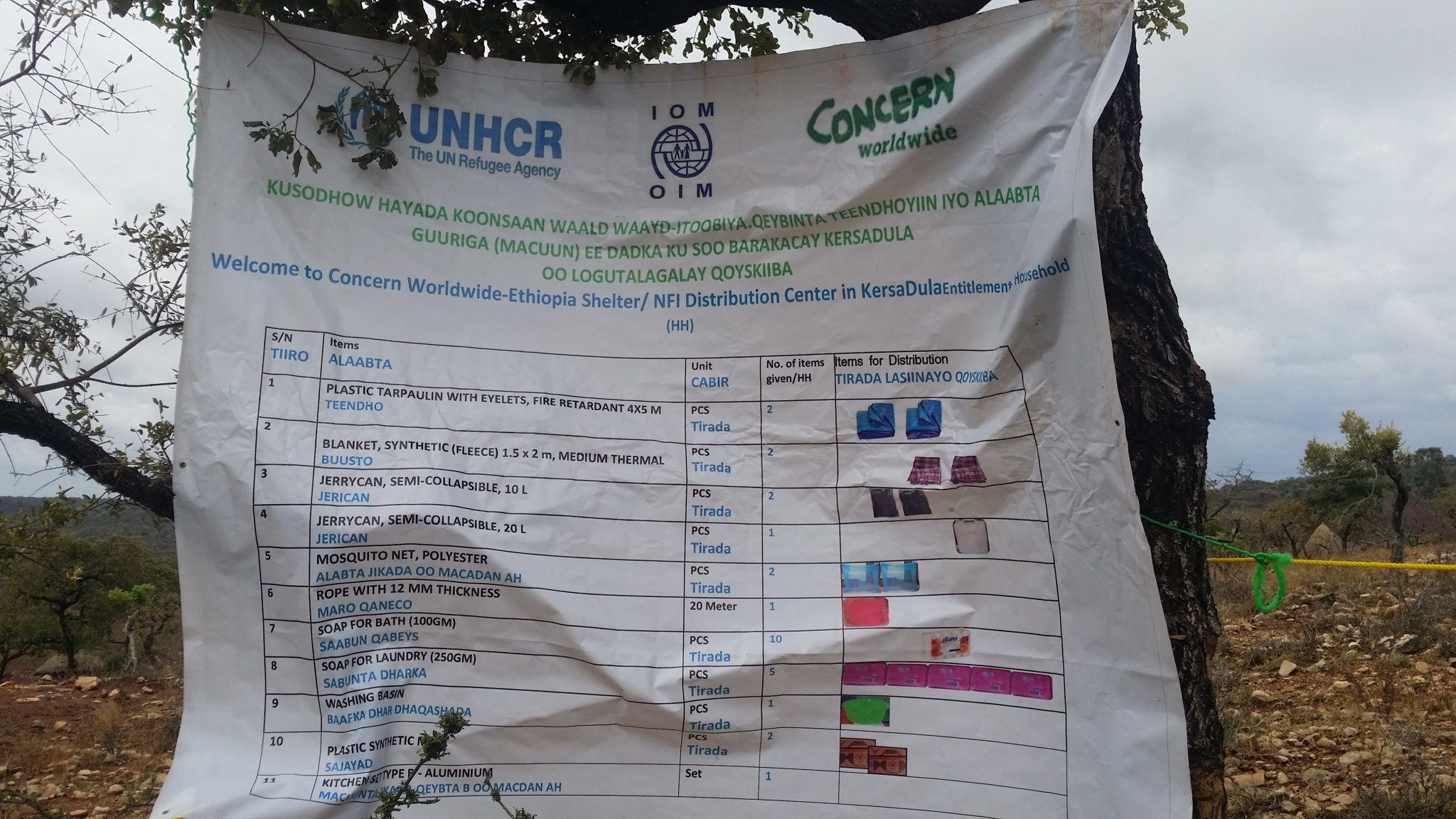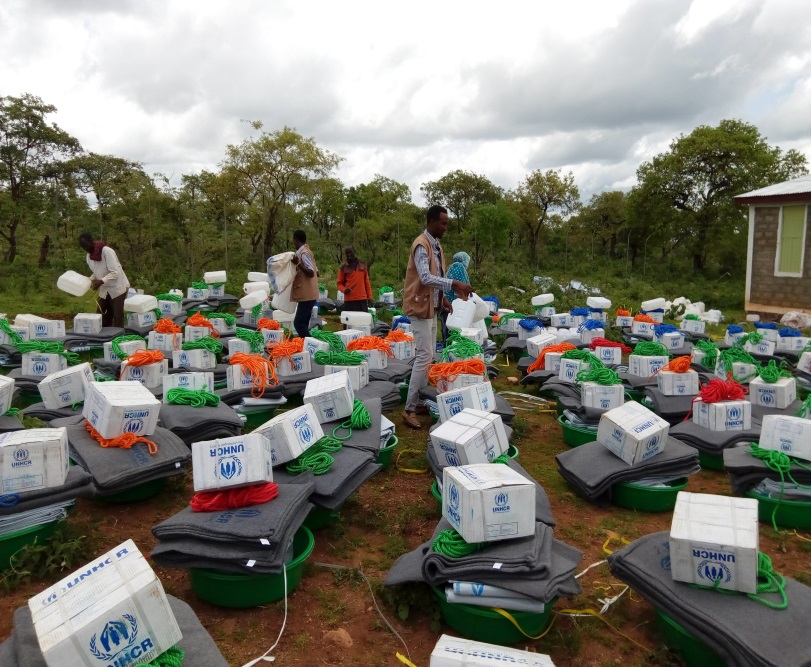Establishing effective and appropriate community feedback mechanisms in Ethiopia
This article is part of our Member of the Month series acknowledging Concern’s commitment to quality and accountability.
In this case study, you can learn how Concern Ethiopia listens to the views and voices of affected communities and ensures that these are captured in two regions, Somali, which is affected by the triple challenge of drought, flood and inter-communal conflict, and in Gambella, where around 356,000 refugees are sheltered.
Internally Displaced People in Ethiopia
The Somali region of Ethiopia is affected by the triple challenge of drought, flood and inter-communal conflict. Concern Ethiopia works with other humanitarian actors to address the needs of those affected by these issues through the provision of vital resources such as shelter, Non-Food Items (NFI) and nutrition services
Concern listens to the views and voices of communities and ensures these are captured. The Effective and Appropriate Beneficiary Feedback Mechanism aims to facilitate a fairer selection of programme participants and to empower them through establishing better communication channels with humanitarian agencies. 

Community members were made aware of their entitlements ahead of a distribution exercise. Photo by Concern Ethiopia, 2018.
‘Communication with Affected Communities’ training sessions was made mandatory for staff who would be dispatched to the field to assist in the distribution of NFIs. Through this interactive training, Concern enabled staff to be better prepared to communicate effectively with community members. Programme participants were also oriented specifically on the programme, along with Participant Protection Policies, Code of Conduct, selection criteria, and their entitlements.
The overall impact of these activities was hugely positive. It led to a number of outcomes:
- Concern was able to identify the most affected and the most vulnerable individuals;
- Appropriate channels to report their complaints were well-established and were improved in terms of quality;
- Concern is seeking to address the identified unmet needs of IDPs, such as water and sanitation.

NFI distribution. Photo by Concern Ethiopia, 2018.
South Sudanese refugees in Gambella
An estimated 356,000 refugees are currently residing in the Gambella region, in Ethiopia.
One of the biggest challenges encountered by Concern in Gambella-Sudanese refugee camps was that almost all programme participants were illiterate. Thus, there was a language barrier between the staff and programme participants. This made reporting, even in terms of monitoring and evaluation, quite challenging. To address this challenge a number of actions were undertaken.
All staff received training on the Core Humanitarian Standard (CHS), Programme Participation and Protection Policy (P4), as well as Code of Conduct and Complaint Response Mechanisms (CRM), and were engaged in the self-assessment exercises. These sought to identify ways in which the views of programme participants could be captured and shared.
Based on programme participants’ recommendations, a CRM corner/help desk, was established, with hired translators. This ensured that complaints, recommendations and suggestions from the affected communities were acted upon in a timely and consistent manner.
